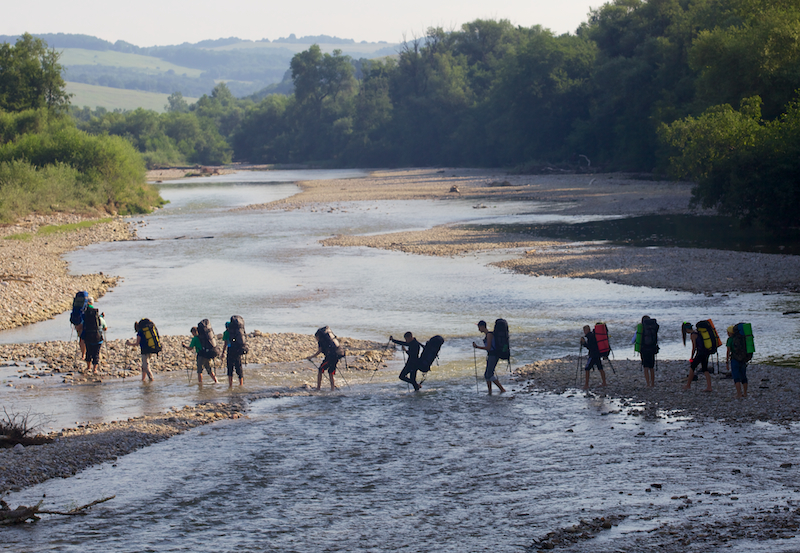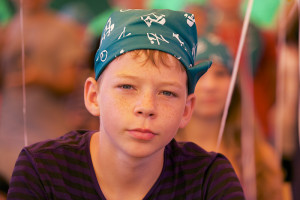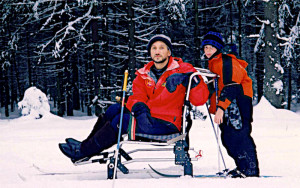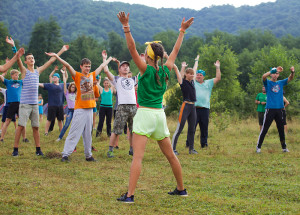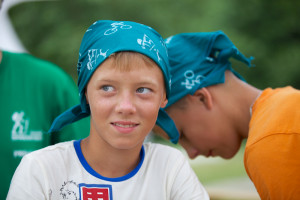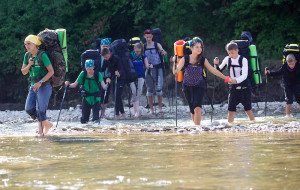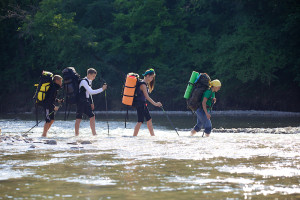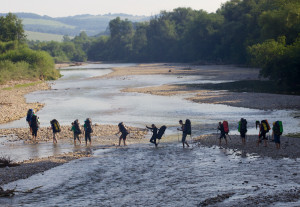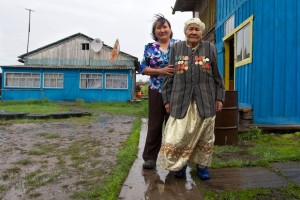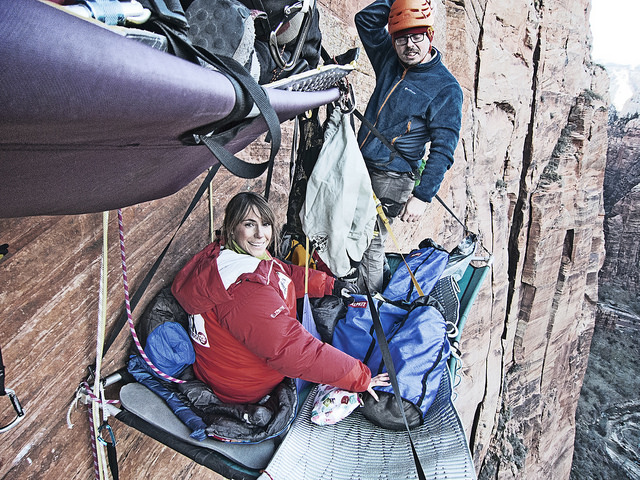Coming Out of the Cocoon
By
Galya Morrell
The boy is obese. He sweats heavily under the midday Southern sun as he is asking me for matches. “I want to smoke … badly”, he confesses in a shy whisper. The glistening peak of the Mount Big Thach, at 2368 meters, lies straight ahead of us. Tomorrow, on the sunrise, the boy is going to embark on a 10 day journey across the Caucuses Mountains. This epic journey is designed to change his life forever. But can he make it? Can he reach the summit?
“Why not?” asks Dmitry Shparo, a Russian polar explorer, known for leading the first ever ski expedition from Eurasia to the North Pole in 1979, co-leading a full traverse across the Arctic Ocean from Russia to Canada via the North Pole in 1988 and for becoming the first human in modern times – along with his son Matvey – to ski across the Bering Strait, from Russia into North America in 1998.
Dmitry’s life story is woven of breath-taking hard-core adventures. Only few on Earth can replicate what he does. But it seems that Dmitry have invested his life, or at least the last 25 years, to prove the opposite. What if you are unfit, weak, or overweight? What if you have asthma, diabetes, impaired vision, hearing or no ability to move at all? Does it really mean you can not reach for the summit?
“It is all in our heads, believe me”, says Dmitry, who taught Theory of Strength of Materials to PhD students in Moscow University for over 20 years. Under the personal leadership of Shparo, blind, deaf and amputees have ascended mountain peaks and crossed deserts, including the ice ones, all around the world.
The “Why Not?” philosophy helped thousands of disabled and disadvantaged children to reach the summits they never dreamed or even heard about, including the North Pole.
Last week Dmitry and his son Matvey, known internationally for many extreme expeditions in the Arctic including the skiing to the North Pole in the conditions of the true polar night, opened a new adventure camp for children in the Northern Caucasus.
Only three months ago half-wild cows and sheep were grazing in this desolate valley in the Kuban forest. Today this valley has become a temporary home for over 400 children many of whom come from underprivileged families or special needs schools. Tents, fire-places, rope courses and other installations for a challenging outdoor personal development and team building activity are seen everywhere. The best alpine instructors are working with the students helping them to confront their personal fears and anxieties and instead – to focus on their personal achievements.
Most of these children have never been in the wild. Most don’t know what to expect.
“What do you learn about yourself when you are in stressful situation? Actually, you learn a lot. You suddenly realize that you are capable of much more than you could ever have thought” says Matvey Shparo, who in the last 7 years led 7 successful teen’ expeditions to the North Pole. The teams included orphans and handicap youths.
Kuban forest is not the North Pole, but here children learn how to overcome themselves, how to make careful steps on an uneven surface, and how to plan for challenges ahead.
“As a polar explorer, I know that I can not prepare for every eventuality. But I know that if have the confidence and trust in my own self, I will make the right decision anyway – under stress. This is what we are trying to teach children here.”
Angry Kuban mosquitoes and horse-flies bigger than eagles are chasing everything alive day and night. There is no escape. There are no air-conditioners and no refrigerators. There is no electricity. But can temperature controlled environments protect us from the real perils of the outside world? Can they protect us against our own fears and insecurities, from our inability to rely upon our selves?
And yes, leaving a comfortable cocoon may be hard. When you leave the cocoon you stay naked. You become vulnerable. But if you make the first step and don’t give up right away, you will see how much you can do – against your own expectations.
We will be following our young expedition fellows on a journey in Kuban. The children will have to make some difficult decisions in the days to come. They will have to learn to work as a team and to show faith in their own selves which they don’t have yet. They will have to also learn that the last one to reach the summit not necessarily is the worst. It’s all about teamwork. As I look at these children and talk to them about all smallest things that matter, my guts tell me: they will figure things out along the way, and they will be all right.
And the goal of the journey, of course, is not the Mount Big Thach itself. The goal is to succeed in the long run. They already have had the courage to leave their cocoon. Now they will have make the next few steps. Tonight they will gather the wood and cow dung, build a fire and make their first and best campfire stew in their life. They will talk and laugh and then sleep staring at the stars.
Read more about the author at http://galyamorrell.com/, see her great photos and read moreabout Dmitry and Matvey Shparo at www.shparo.com
